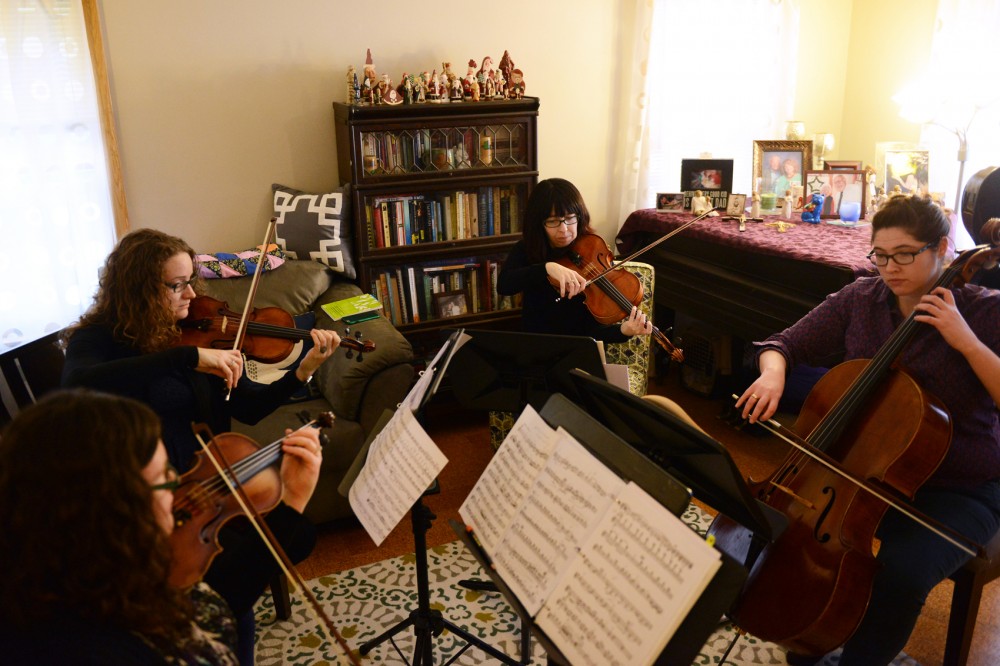Prisons and rural elementary schools are not exactly standard venues for performing classical music.
By playing these venues in addition to free public concerts, the Mill City String Quartet works to bring high-quality classical chamber music to everyone.
The quartet has two upcoming free concerts, one at the James J. Hill House on Thursday and one at Open Book on Saturday.
“I find that [some] people come to the concert with a myth that it’s going to be boring,” said Huldah Niles, one of the violinists for the quartet. “They are sucked into the moment and focusing on one thing.”
Four University of Minnesota alumni formed the Mill City String Quartet in 2007 as a way to keep playing chamber music after graduation.
In its current form, the quartet includes violinist Huldah Niles, violinist Erika Hoogeveen, violist Valerie Little and cellist Jeffrey Erbland. All are professional musicians in the Twin Cities area who play in the quartet for fun.
“We felt strongly that after school we wanted to keep doing it, just to keep that passion alive and share it with people,” Niles said. “If people don’t go out and perform it, the art form could die.”
In recent years, the quartet has been playing more outreach concerts to bring classical music to people who don’t have access to it.
In 2013, they played outreach concerts at 13 libraries in southern Minnesota. In their 2014-15 season, they performed concerts at seven southern Minnesota elementary schools through Minnesota Public Radio’s “Class Notes” program.
This past year the quartet played concerts at several prisons in the Twin Cities area.
“We were totally blown away by the concerts in the prisons,” Little said. “They were all just so happy and had really good questions — it was the most meaningful outreach thing that we’ve done so far.”
Each of the quartet’s concerts has a Q&A session afterward where the musicians talk about the pieces and interact with their audiences on a one-on-one basis.
In an effort to make classical music more interesting for an audience, the quartet also gives verbal performance notes before playing.
They like to give the history and context to the piece and point out things to listen for, like a composer’s trademark or the melody being passed around.
In their upcoming performances, they’re playing Shostakovich’s String Quartets No. 3 and No. 15.
The contrast between the two pieces is extreme — Shostakovich’s wrote the first one early in life and the other a year before he died.
“The third quartet, the earlier one, speaks a lot more about what was going on in the Soviet Union at the time,” Little said. “The other quartet is more of a personal reflection.”
The Mill City String Quartet likes to make it easy for their audiences to enjoy their music, but they also hope their audiences learn something new.
“We like to push boundaries and what people are used to and what they’re comfortable with,” Niles said. “[Chamber music] is the same quality as famous paintings, but you can’t go look at it in a museum. Even with a recording, you don’t get the same experience: You need someone to perform it for you.”








